Disclaimer: Asian Century Stocks uses information sources believed to be reliable, but their accuracy cannot be guaranteed. The information contained in this publication is not intended to constitute individual investment advice and is not designed to meet your personal financial situation. The opinions expressed in such publications are those of the publisher and are subject to change without notice. You are advised to discuss your investment options with your financial advisers, including whether any investment suits your specific needs. From time to time, I may have positions in the securities covered in the articles on this website. To reiterate, this post and the below presentation are for informational and educational purposes only - not a recommendation to buy or sell shares.
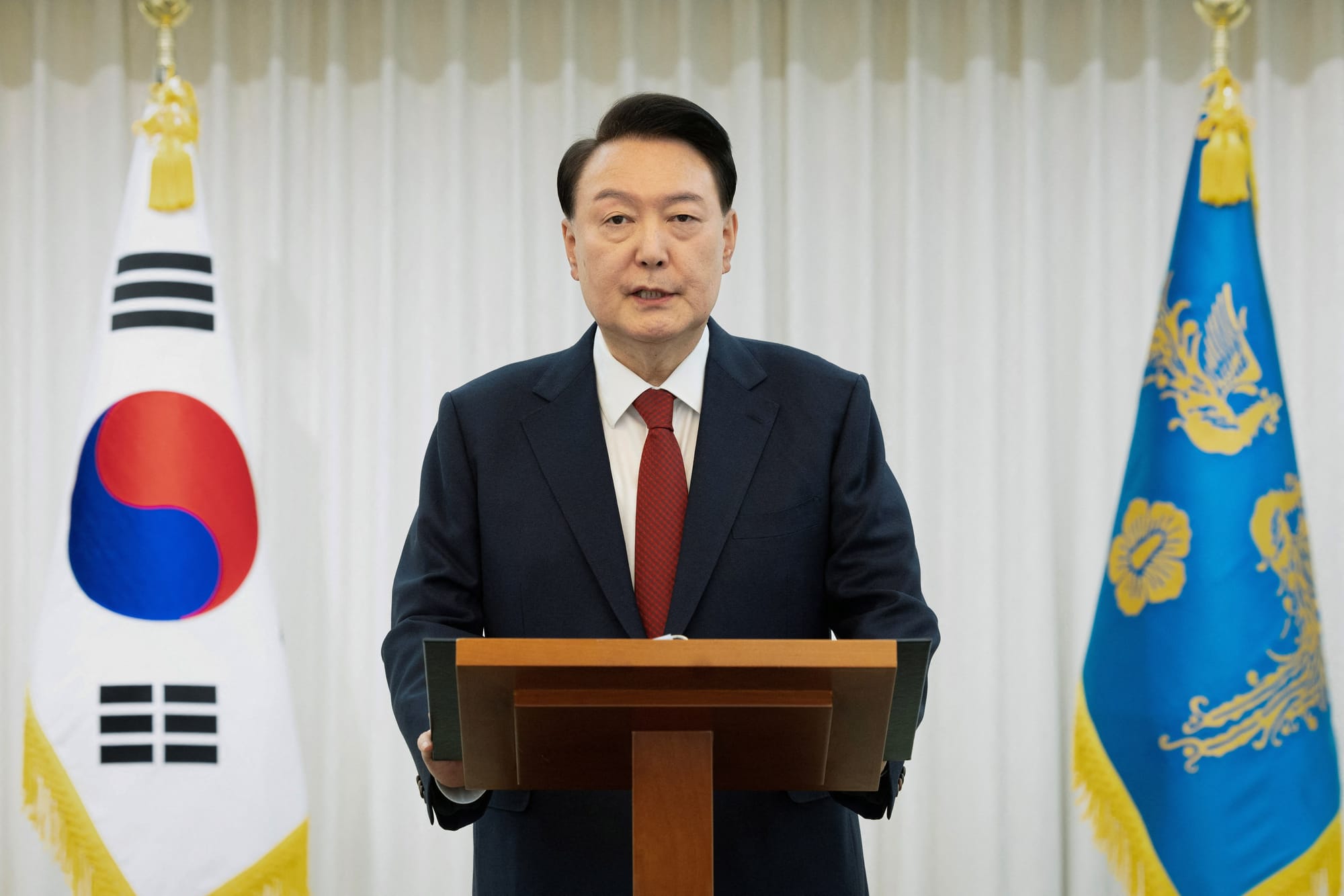
The imposition of martial law in South Korea on 3 December 2024 has left investors scratching their heads. Why did President Yoon take such an extreme measure?
In this post, I want to shed light on what’s transpired since 3 December. And discuss the opportunity given what’s happening politically in South Korea.
Table of contents:
1. Yoon Suk Yeol's coup
2. The Value Up program is dead
3. The opportunity set
4. My current watch list
4. Conclusions1. Yoon Suk Yeol's coup
On 3 December 2024, President Yoon Suk Yeol imposed martial law. In a televised late-night address to the people of South Korea, he justified the decision in the following way:
Dear respected citizens,
As president, I appeal to you with a heart full of sorrow.
Since the inauguration of this government, the National Assembly has proposed 22 motions to impeach government officials and has been pushing for the impeachment of a 10th individual since the 22nd National Assembly took office in June. This is not only unprecedented in any country in the world; there has been nothing like it in the history of our country since its founding. The Assembly has paralyzed judicial work by intimidating judges and impeaching prosecutors. It has even paralyzed the administration with attempts to impeach the minister of the interior and safety, the chairman of the Korea Communications Commission, the president of the Board of Audit and Inspection, and the minister of national defense.
The National Assembly cut all major budgets for key essential functions of the state, such as anti-drug crime measures and public safety maintenance, sabotaging the core functions of the state, turning Korea into a “drug paradise,” and causing panic over public security.
The Democratic Party (DP) has slashed 4.1 trillion won ($2.85 billion) for next year’s budget, including 1 trillion won from funds to prepare for disasters, 38.4 billion won in child care support, and more for youth employment and deep-sea gas development projects. They even put the brakes on enhancing the welfare of military officials, including pay raises for junior military officers and raising costs for them working on duty. This kind of reckless movement regarding the budget is nothing less than the cajolement of national finances.
The DP’s legislative dictatorship, using the budget only as a tool for political strife, has even gone as far as to propose a budget impeachment.
The state administration is paralyzed, and the sighs of our citizens are deepening. This is clearly an act of inciting internal rebellion by trampling on the constitutional order of the free Republic of Korea and disrupting legitimate state institutions established by the Constitution and law.
The people’s lives are not considered, and the administration is paralyzed due to its sole focus on impeachment, special prosecution, and shielding its party leader from prosecution.
Now, our National Assembly has become a den of criminals, paralyzing the nation’s judicial and administrative systems through legislative dictatorship and planning for the overthrow of our liberal democratic system. The National Assembly, which should be the foundation of liberal democracy, has become a monster trying to destroy it. At this moment, Korea faces a fate that is never strange even if it collapses immediately.
My fellow citizens,
I declare martial law to protect the Republic of Korea from threats posed by North Korean communist forces, to immediately eradicate unscrupulous pro-Pyongyang anti-state forces that pillage the freedom and happiness of our people, and to protect free constitutional order.
Through this emergency martial law, I will rebuild and protect the free Republic of Korea, which is falling into ruin.
For this purpose, I will certainly eradicate such anti-state forces and those responsible for ruining our country who have committed evil acts up until now. It’s an inevitable measure to guarantee the people’s freedom, safety, and national sustainability against actions by anti-state forces seeking to overthrow our system.
The declaration of martial law will cause some inconveniences for good citizens who believe in and follow constitutional values. However, we will focus on minimizing such inconveniences. I will eliminate anti-state forces and normalize our country as soon as possible. Such a measure is inevitable for ensuring a free Republic of Korea’s permanence. There is no change in Korea’s foreign policy stance or its commitment to fulfilling responsibilities within the international community.
As president, I sincerely appeal to you—the people: I will dedicate my life to protecting this free Republic of Korea. Please trust in me.
Thank you.Martial law means replacing the civilian government with military authority. In one fell swoop, all political activities, such as strikes, sabotage and assemblies, became illegal. All speech and publishing were to be controlled by a martial law authority.
This was a break from the past. Yoon’s imposition of martial law was the first time it had happened since South Korea became a democracy in the 1980s.
Article 77 of South Korea’s constitution allows the president to declare martial law when:
"It is required to cope with a military necessity or to maintain the public safety and order by mobilization of the military forces in time of war, armed conflict or similar national emergency."
But it’s highly questionable whether the situation called for it. There was no military necessity to impose martial law, nor was there a threat to public safety.
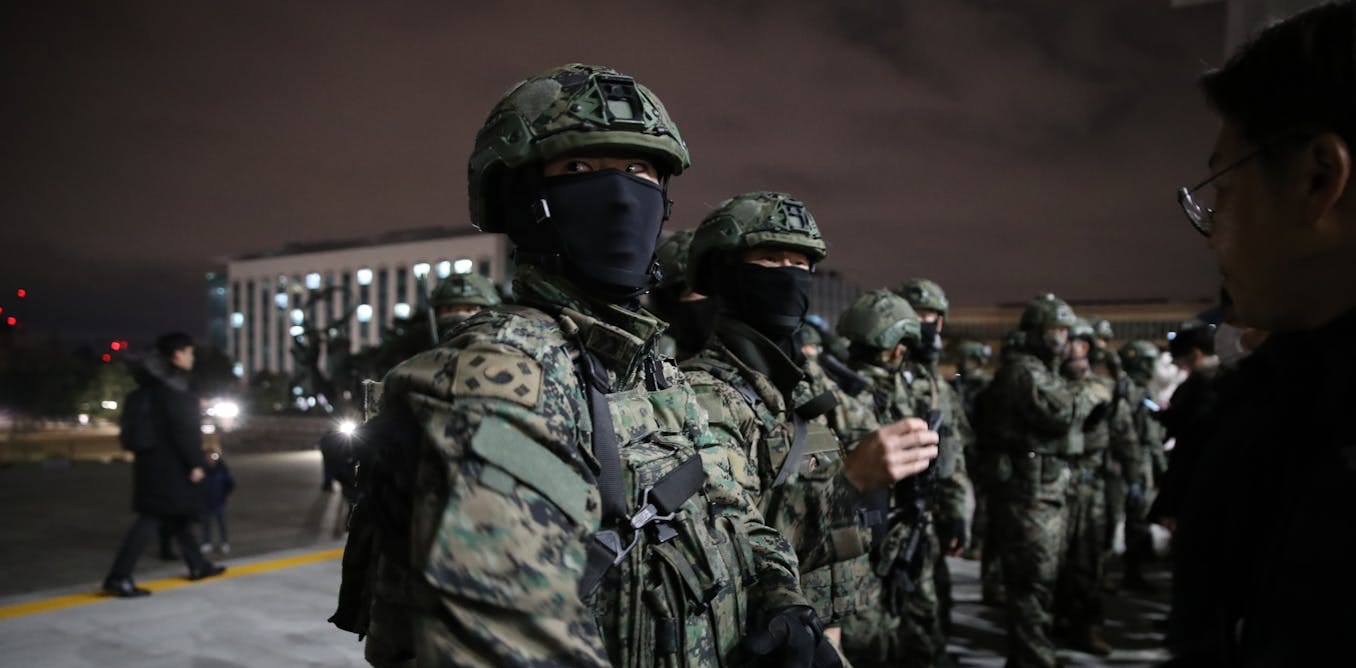
Under an order by President Yoon, the Defense Ministry sent 300 soldiers to the National Assembly to gain control of the building and - some say - even block lawmakers from getting in.
Crowds immediately gathered outside the National Assembly, chanting, “Arrest Yoon Suk Yeol!”. Many argued that Yoon was trying to cover up a corruption scandal involving his wife. He had repeatedly vetoed an opposition-led bill calling for an investigation into the scandal.
The martial law didn’t last long. Lawmakers were indeed able to get into the National Assembly. And since the opposition now controls it, they got enough votes to get martial law lifted.
In the end, martial law only lasted six hours. Yoon apologized, saying, "I'm very sorry, and I apologize to the public, who must have been deeply surprised."
The big question is now whether Yoon will be impeached for his actions. Or perhaps even arrested. In the days following the event, protests emerged outside the National Assembly, with many believing Yoon undermined the country’s democracy. An opinion poll in early December showed that 74% of South Korea’s population wants Yoon to be impeached.
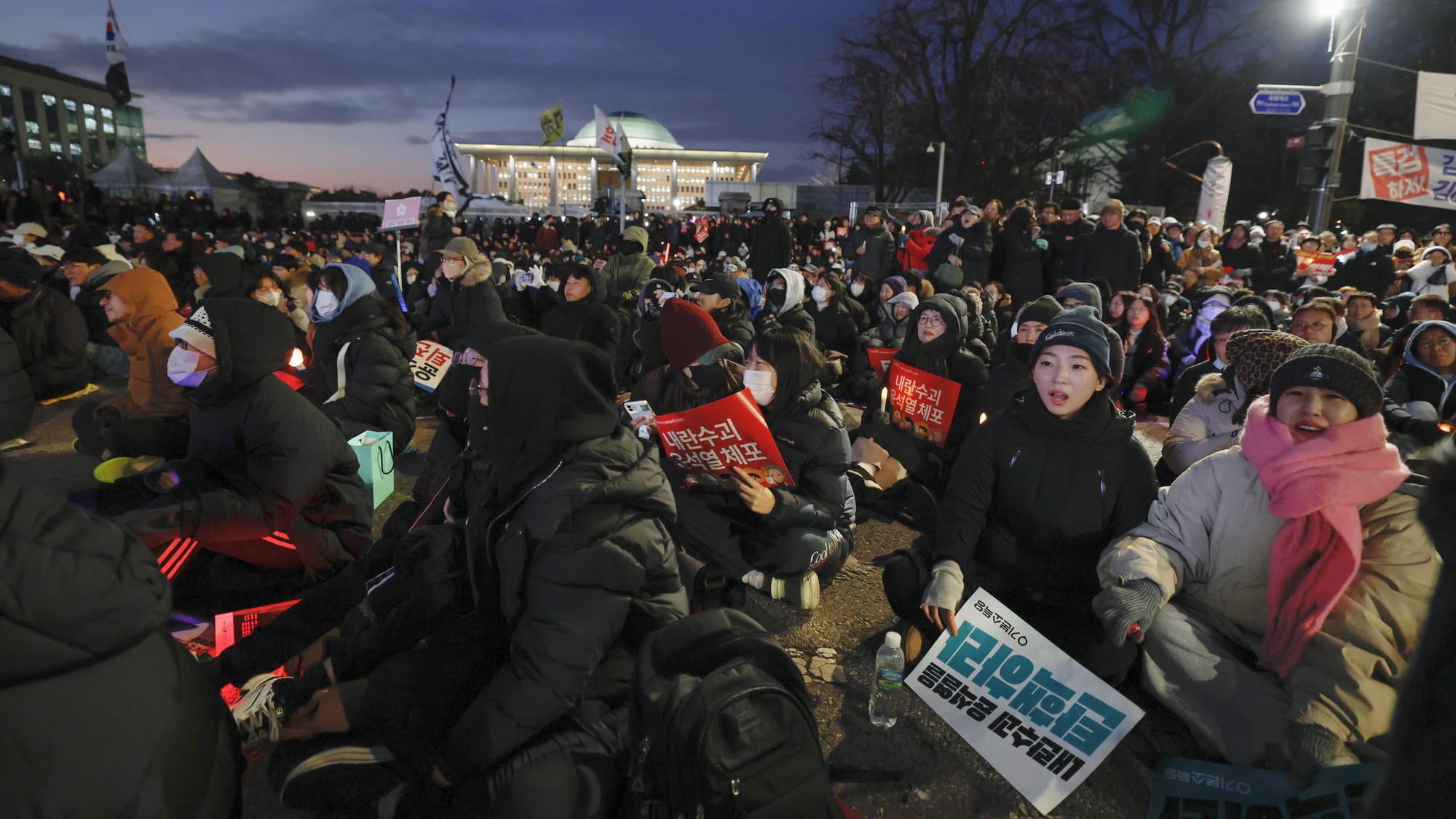
On December 14th, the National Assembly got enough votes to impeach him. The Constitutional Court will make the ultimate decision, which could take up to six months.
Initially, South Korea’s eminently capable Prime Minister, Han Duck Soo, took over Yoon's presidential duties. However, a few days later, he was impeached too for his involvement in the December 3rd events.
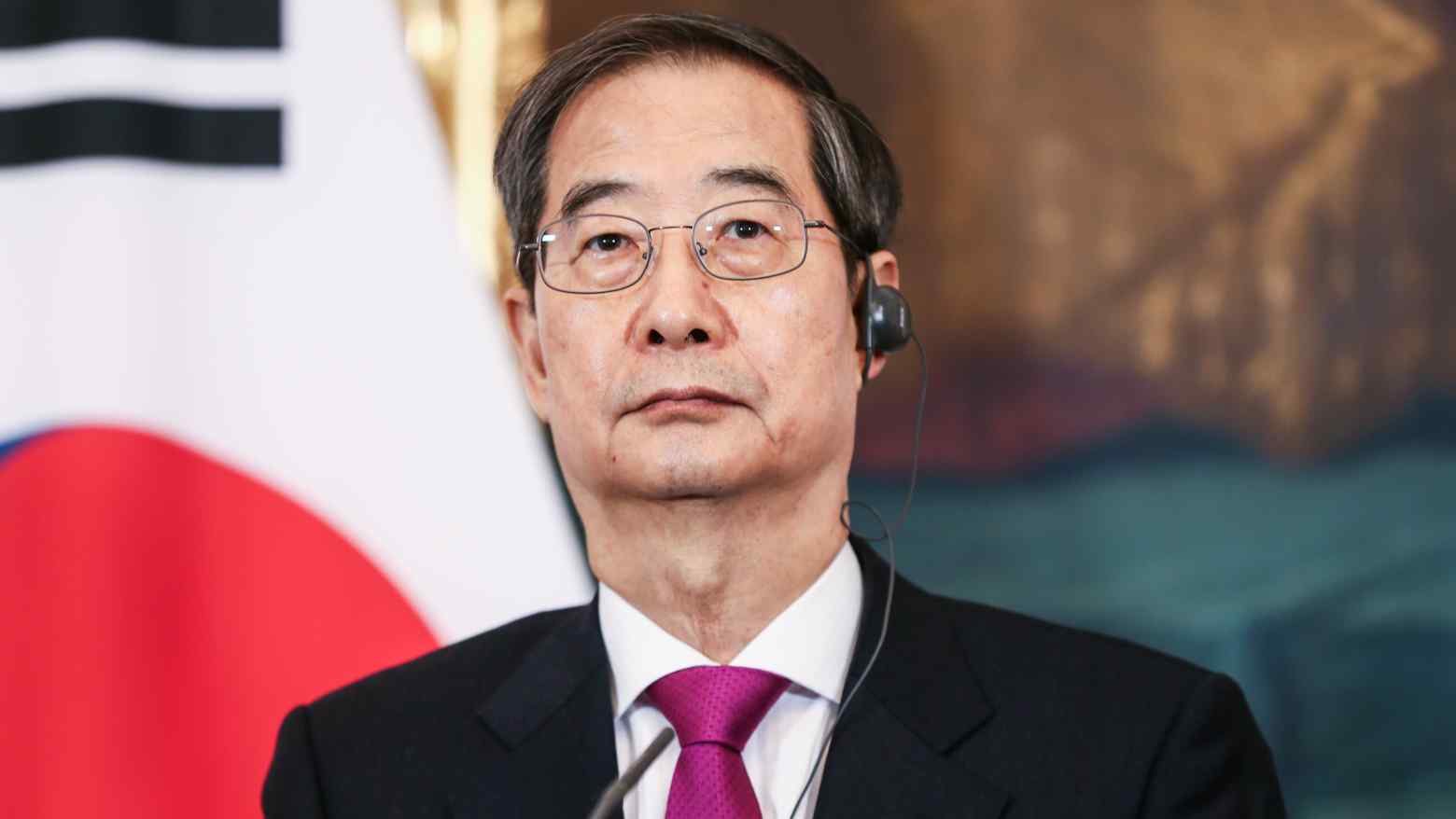
So, at the moment, the country’s new acting President is instead Deputy Minister Choi Sang Mok, who happens to be the finance minister as well. It’s a big mess.
Prosecutors have also named Yoon Suk Yeol as the subject of a criminal investigation over his attempt to impose martial law. If he’s guilty of leading an insurrection, he could be punished by life imprisonment or death.
So what the hell happened? Why did Yoon impose martial law in the first place?
The best explanation I’ve found comes from Professor Joel Atkinson in a Nikkei editorial available here. Atkinson argues that Yoon is simply acting the way that he’s become accustomed to as a public prosecutor. He’s used to having power in his hands. In Atkinson’s own words:
“Prosecutors have certain legal powers and exist within a clear hierarchy of authority. They are loyal to the organization and move antagonistically against other organizations. They give orders to their subordinates and expect them to be carried out.”
For example, Yoon was the lead prosecutor against former president Park Geun Hye, who was implicated in a bribery scandal. As a result, Yoon became known as a person of strong principles.
From what I’ve read about him, he seems to have his heart in the right place. He supports liberal values and a market-driven economy and believes in democracy. He was probably earnest when he said he intended to root out anti-state forces and rebuild the democratic system. Atkinson, again:
“More credible are those who see Yoon and his agenda as indeed boxed in by the opposition. Instead of being a competent politician and preventing that situation from developing, Yoon brought himself to this point of siege and declared martial law as a solution.”
But Yoon’s talk of operating within a “legislative dictatorship” is laughable. The opposition was elected, most likely in a lawful way. At the same time, it’s probably true that the Minjoo Party opposition is doing everything in its power to subvert and disrupt the existing order. It’s plausible that both North Korea and China are doing what they can to see a return of control to the Minjoo Party and its leader, Lee Jae Myung. That would lead to a geopolitical shift away from the United States and Japan.
In any case, it’s clear that for investors, having a pro-market politician such as Yoon Suk Yeol in charge should be preferable. According to opinion polls, if a presidential election were held today, Lee Jae Myung would likely win. And on the margin, that would probably not be positive for Korean equities.
2. The Value Up program is dead
I think the biggest casualty of the episode will be the “Corporate Value Program”, which Yoon Suk Yeol championed as one of the main pillars in his campaign to attract foreign capital to South Korea. The government encouraged companies to outline plans to improve their market values. A Korea Value Up Index was launched, comprised of companies exhibiting global best practices.
In May 2024, I wrote about South Korea’s Corporate Value Up program, arguing that the main impediments to better corporate governance are the high inheritance and dividend taxes. They incentivize controlling shareholders to minimize dividends and keep share prices low. The fact that related party transactions don’t require minority approval is another issue setting the market back.
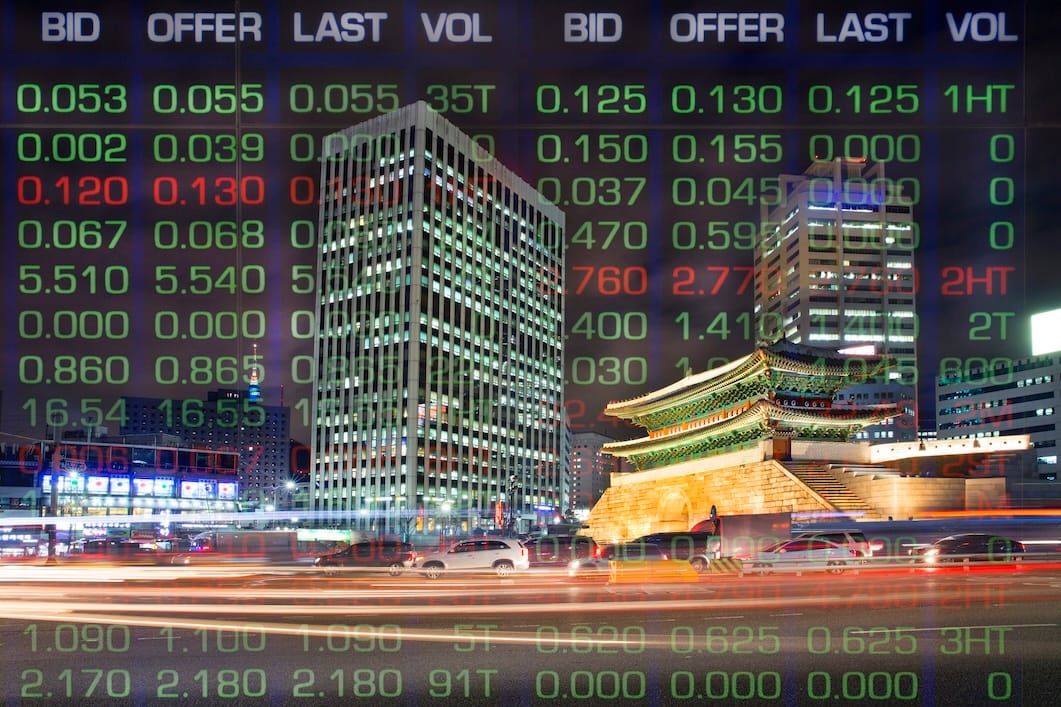
In my post, I argued that the Corporate Value Up program would be ineffective anyway. Participation has been voluntary. Why would South Korea’s leading business families suddenly care about maximizing share prices? They’ll go through the motions and continue favoring themselves at the expense of minorities.
So the underlying problem hasn’t been solved. In fact, on 10 December 2024, the National Assembly rejected the proposed cuts in the inheritance tax and the special tax on dividend income. And with Yoon out of the picture, the Value Up program is probably dead.
If the Minjoo Party opposition takes back control of the presidency, it will probably launch a diluted version of the Value Up program, which it calls the “Korea Boost Up Project.” This program aims to strengthen the rights of minority shareholders, including mandating the appointment of independent directors. I don’t think this plan will make much of a difference on valuations.
3. The opportunity set
I think the imposition of martial law and the Corporate Value Up program have been side shows, for the most part.
Even if the Lee Jae Myung becomes the next President, the base case has to be a return to normal. Yoon has openly stated that he does not intend to impose martial law a second time, nor is he in a position to do so.
Korean brokers argue that the macro backdrop is challenging, with South Korea’s famously export-driven economy exposed to the Chinese slowdown and high global interest rates. But cycles come and go. And you could have argued the same about Taiwan, whose stock market went on an epic bull run in 2024.
KOSPI’s P/B ratio is nearing its 2008 lows. And the forward index P/E is now close to just 8x:
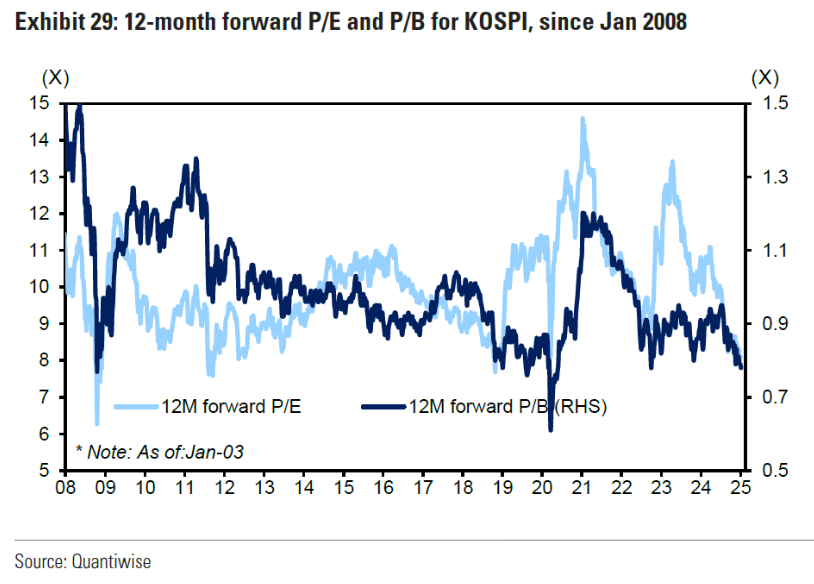
This is an entirely different climate than in 2021 when I argued that South Korea’s stock market was in a bubble:
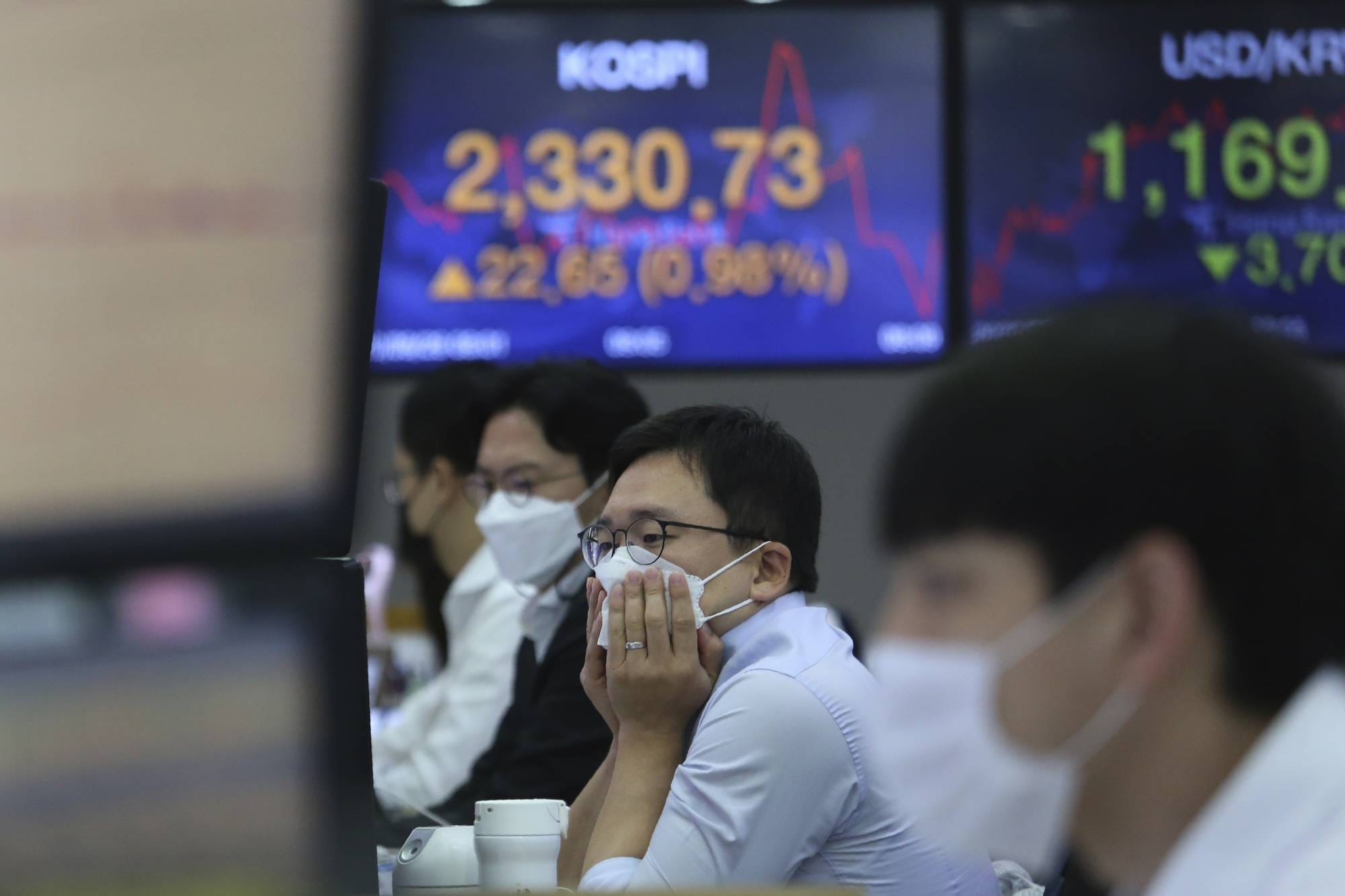
And recently, we’ve also seen weakness in the South Korean won, which has dropped about 25% against the US Dollar since 2022.
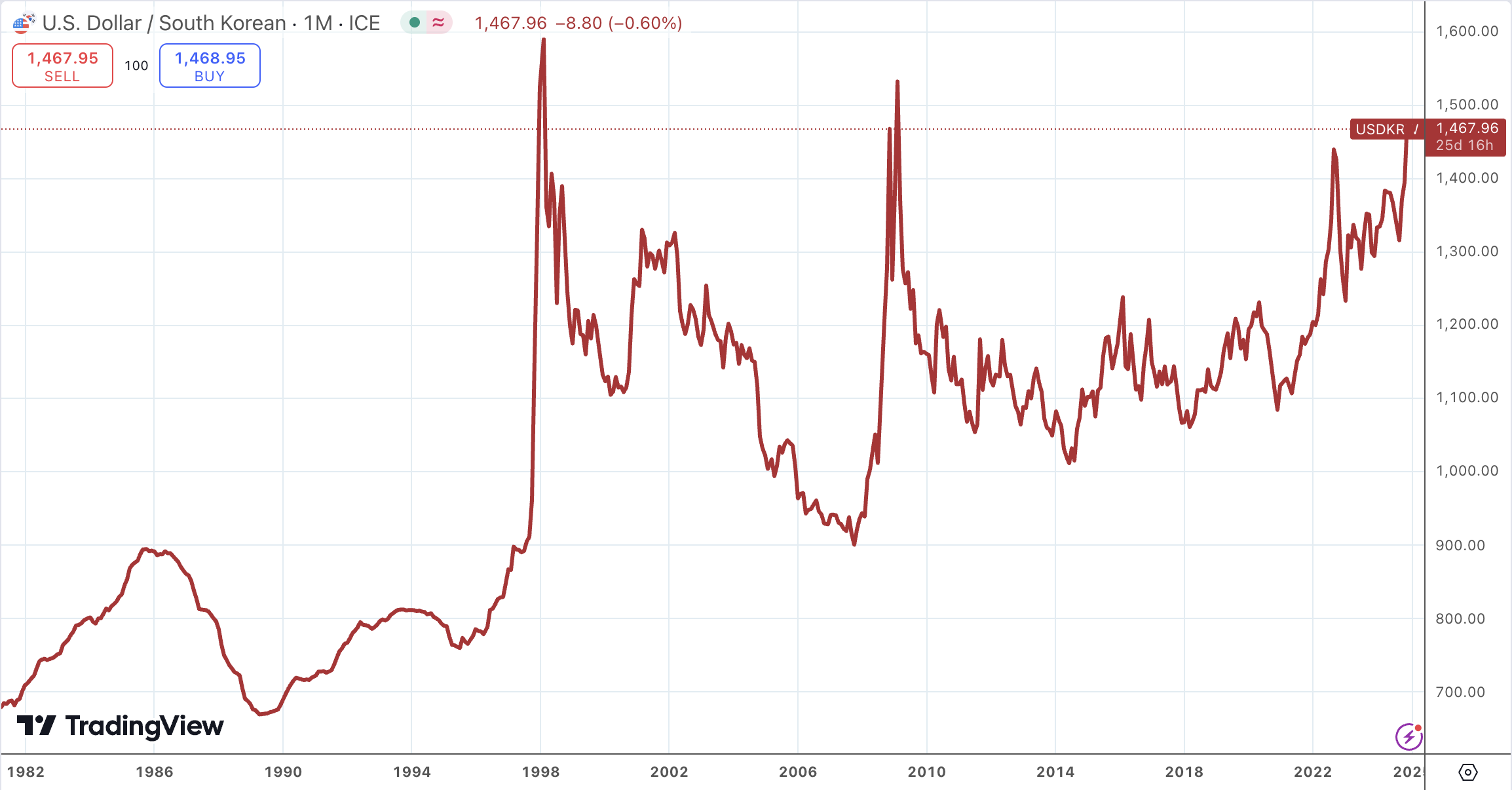
Many of South Korea’s largest companies, such as Samsung Electronics, SK Hynix, Hyundai Motor, Kia, KB Financial and Shinhan Financial Group now trade at low multiples. Have a look for yourself:
The problem, as I’ve explained above, is that capital allocation is suboptimal in most cases, leading to a lower return on equity compared to most other markets. In the case of South Korea’s banks, they’re or less controlled by the regulator who sets their dividend policies and micro-manages their lending practices.
When it comes to higher quality companies, many investors argue that SK Hynix qualifies, as does Naver, Lig Nex1, Coway, Samyang Foods, Korean Ratings and a few more.
To highlight the opportunities available in the Korean market, let me go through five companies that I’ve recently added on my personal watch list. I might write about them in future deep dives here on Asian Century Stocks.










